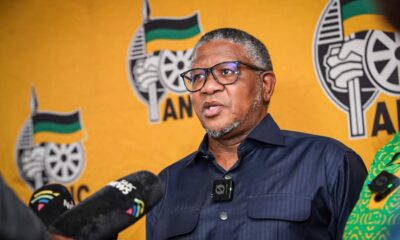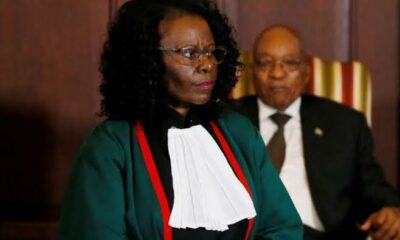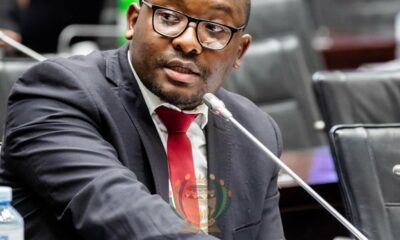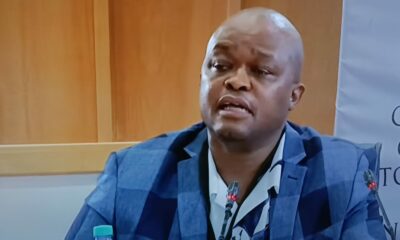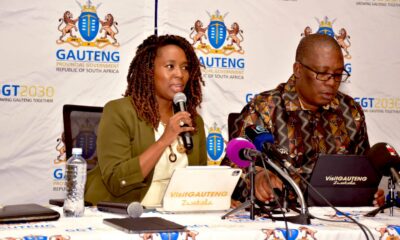News
GNU at War with Itself: One Year In, the ANC-DA Coalition Teeters on the Brink
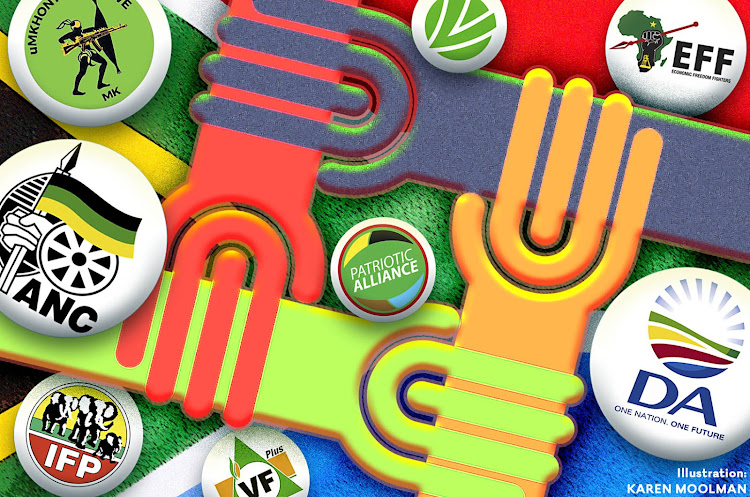
One year later, South Africa’s Government of National Unity is less about unity and more about survival
One year ago, South Africans woke to a political reality they had never seen in the democratic era: the African National Congress (ANC), stripped of its outright majority for the first time in 30 years, cobbling together a Government of National Unity (GNU) with its traditional rival, the Democratic Alliance (DA).
The move, born out of necessity more than alignment, was touted as a mature response to the fractured outcome of the May 2024 general elections a time for grown-ups to sit at the same table. But 12 months on, that table looks less like a conference room and more like a battleground.
A Coalition Built on Sand
The ANC’s fall to 40.2% of the vote forced it into unfamiliar territory. Its most viable option? Partnering with the DA, which had 21.81%, and smaller players like the IFP and UDM.
But this was no ideological match made in heaven. As Professor Sipho Seepe aptly wrote, “This is a marriage of inconvenience.” One where mutual suspicion has replaced shared vision. Public sniping, internal divisions, and policy paralysis now dominate headlines.
In fact, President Cyril Ramaphosa is one of the few remaining cheerleaders for the GNU. His tone is measured, even optimistic. But away from the Union Buildings, the ground tells a different story.
Bickering, Betrayals, and Broken Trust
The cracks started early. Cabinet seat negotiations devolved into a tug-of-war, with the DA rejecting the ANC’s offer of six posts — including key departments like Basic Education and Home Affairs. DA leader John Steenhuisen demanded more power, framing it as leverage to keep the ANC-EFF-MK alliance at bay.
Meanwhile, DA Federal Chair Helen Zille warned that without a DA-ANC firewall, South Africa would be “burned” by a populist leftist coalition. That firewall now looks more like a leaky pipe.
The two biggest parties in the GNU cannot agree on major policy, most glaringly illustrated by the DA voting against the national budget — a document they technically co-govern. The flashpoint? A proposed VAT increase to fund expanded social services. The DA slammed it as anti-poor. The EFF, ironically, celebrated the DA’s “No” as a blow to neoliberalism.
It’s hard to say who’s steering the ship, or whether anyone is.
Whispers of Division, Roars of Discontent
According to political analyst Professor Dirk Kotze, the GNU’s internal contradictions are beginning to paralyse it.
“The ANC is deeply divided on the GNU,” he noted, pointing to conflicting postures — like Gauteng Premier Panyaza Lesufi’s public support, but relative inaction. Meanwhile, public spats between Fikile Mbalula and Helen Zille have become a weekly feature of Twitter drama and Sunday newspapers.
Opposition parties have seized on the chaos. EFF leader Julius Malema called the DA “the enemy,” while Jacob Zuma’s MK Party accused the ANC of betraying its liberation legacy by sleeping with the enemy. ActionSA and others have dismissed the GNU as prioritising capital over communities.
Markets Nervous, Voters More So
The uncertainty hasn’t gone unnoticed. Fitch Ratings recently flagged the GNU’s instability as a risk to investor confidence and warned that overtures to the EFF or MK could spook markets further.
On the ground, voters are equally uneasy. Approval ratings have dipped, and confidence in the coalition’s ability to deliver basic services never mind transformation, is waning fast.
Despite passing some key legislation, the GNU lacks a coherent, unified agenda. It’s not just the politics that feel unstable, it’s the entire direction of governance.
Where To From Here?
The GNU is at a political crossroads. Will it grow into a functioning, inclusive model of multi-party governance? Or collapse under the weight of conflicting ambitions and ideological wars?
In many ways, the next few months will determine the fate of coalition politics in South Africa, whether they can become a tool for national healing or a recipe for democratic dysfunction.
Right now, the public isn’t buying the unity part of the name.
{Source: IOL}
Follow Joburg ETC on Facebook, Twitter , TikTok and Instagram
For more News in Johannesburg, visit joburgetc.com

